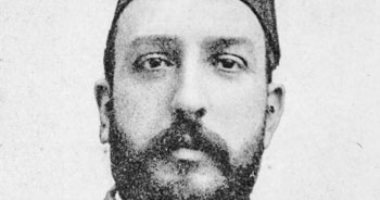Khedive Tawfiq, son of Khedive Ismail, the sixth rulers of Egypt from the Alawite family. He is the cheeky of Egypt and Sudan during the years 1879-1892 AD, born on November 15, 1852.
Although Tawfiq was in his beginnings and before his arrival to the ruling from the remorse of Jamal Al -Din Al -Afghani and the old National Party’s men and had a relationship with a number of reformists and those with thought calling for the establishment of a constitutional Shura life at that time, including Salim Al -Naqash, Muhammad Abdo and Abdullah Al -Nadim, but he turned against them yet His arrival to the ruling, where Khedive Tawfiq sensed the fear of European influence, since the beginning of his rule; As his father’s removal, I understand that the best way to preserve his throne is in line with the demands of England and France.
Among the direct factors that led to the tension of the relationship between the Egyptian people and the Egyptian intellectual group and the Khedive Tawfiq, is the increase in European influence, the protection of the rights of foreigners and the spread of that influence, and its progress from the “Religion Fund Committee”, to “bilateral monitoring”, to “two foreign ministers” in the ministry The Egyptian, then the bilateral monitoring system, during the era of Khedive Tawfiq; And the issuance of the “liquidation” law, and the abolition of the religion of the interview, which raised the notables of the Egyptians and their great ownership.
In addition, the exorbitant taxes, which the peasants were paying, to meet the debt installments; And the poor conditions of employees, from reducing their salaries and delaying their disbursement, and not equating them with European employees; And decrease the number of the army to 12 thousand soldiers; To provide debt.
The Arab revolution, then, was a revolution on foreign interference in Egypt’s affairs, which began with economic intervention, and then turned into a blatant political intervention; This was considered an underestimation of national dignity. Therefore, Orabi called for an increase in several army, to reach 18 thousand, according to the Royal Furnat; Believing from the leaders of the revolution, it is necessary to have a strong army, to face England and France.
This was behind the Egyptians’ grumbling about the existing system of government, and they wanted to get rid of it; For their persecution and tyranny. There is no justice, nor law; Rather, it struck with whips; To collect money, or for repression and torture; Although Riad Pasha invalidated its use, his orders were not completely implemented. The forced labor was imposed on the country.
It was not limited to the benefits and public works, but rather enrolled in reclamation of the clay of power and prestige, from rulers and princes.
The educated Egyptians realized that reforming the regime is by setting a constitution, and the establishment of a parliamentary council, which increases the principles of justice and freedom, monitors rulers, and prevents the committing of grievances. They participated in seeing the national officers.
Riad Pasha rushed to oppose the establishment of a parliament. And completely biased to European influence. He insisted on suppressing all his opponents, including journalists and notables. Secret meetings were held at the house of Muhammad Sultan Pasha; To organize the National Party. The links were strengthened between his organizers, led by Sultan Pasha, Ahmed Orabi, Abdul -Aal Hilmi, Ali Fahmy and Mahmoud Sami Al -Baroudi..

